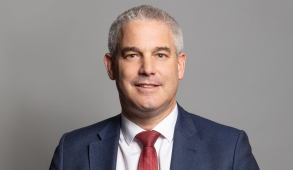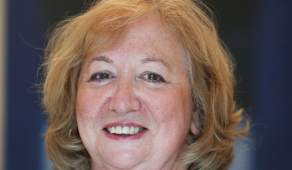Nurses vote to strike for higher pay
The RCN balloted 300,000 members in a series of mini ballots. Nurses in every service in Scotland and Northern Ireland voted for action, with all but one health board in Wales doing the same. In England turnout was too low in almost half of NHS trusts to enable action to go ahead, with 50% of members needing to take part for the ballot to count. But action will go ahead in all the other English providers.
Action must take place within six months in England, Scotland and Wales, and has to start within 28 days of the ballot in Northern Ireland. First action is expected before Christmas.
In England, staff on agenda for change have been awarded a flat £1400 pay increase – an average pay rise of 4.75%, but equivalent to a 9.3% increase for the lowest paid staff and 1.5% for those on the highest AFC bands. For a band 6 or band 7 nurse, the payment would be the equivalent of a 4% pay rise. The RCN has been calling for an increase of 5% above the rate of inflation, as measured by the retail price index, which currently stands at 12.6%.
Health and social care secretary Steve Barclay (pictured) said it was ‘disappointing that some RCN members voted for industrial action’. He added that the government had accepted the recommendations of the independent pay review body in full for the current year, which followed a 3% rise last year. ‘Union demands for a 17.6% pay settlement are around three times what millions of people outside the public sector will typically receive and simply aren’t reasonable or affordable,’ he said.
RCN general secretary and chief executive Pat Cullen (pictured) said that anger among nurses had become action, but that the government still had an opportunity to avoid strikes. ‘Next week’s Budget is the UK government’s opportunity to signal a new direction with serious investment,’ she said. ‘Across the country, politicians have the power to stop this now and at any point.’
She added that the action would be as much for patients as it is for nurses. ‘Standards are falling too low and we have strong public backing for our campaign to raise them,’ she said.
Health union Unison is also balloting members in England, Wales and Northern Ireland, with the result expected before the end of the month. In Scotland, Unison had been balloting its members, recommending rejection of a 5% pay offer. However, following an improved flat rate offer of £2,205 – the equivalent of an average 7% increase – the strike ballot was suspended while the union consulted its members.
The union also insisted strikes were not inevitable, but ministers needed to solve the staffing crisis – latest figures suggest the NHS has 130,000 vacancies across all disciplines in England. Addressing this must start with a pay rise for health workers, the union said.
Speaking to the BBC’s Newsnight this week, Unison general secretary Christina McAnea (pictured) said the union would always agree minimum service levels with employers during any strike action. ‘I heard a story today of a ward with 14 patients on it and one healthcare assistant looking after them at night,’ she said. ‘I guarantee you this, if we were on strike and the employers came to us and said here is the minimum staffing level we want, they would never put that down on paper. It would always have a higher staffing level.
‘I’m serious when I say that there is a real chance that if we take strike action, you’ll actually get better staffing levels in some parts of the NHS,’ she added. ‘It is utterly shocking that we are that point.’
Interim chief executive of NHS Providers, Saffron Cordery, said that trusts would do all they could to minimise disruption for patients. ‘We understand just how strongly nurses feel and why they've got to this point: below-inflation pay awards amid the rising cost of living, severe staff shortages and ever-increasing workloads,’ she said. ‘The context of a very challenging period due to the Covid-19 pandemic also can't be understated.’
Matthew Taylor, chief executive of the NHS Confederation, also acknowledged that nurses will not have taken the decision to strike lightly. ‘Years of supressed pay alongside 47,000 [nursing] vacancies across England and rising demand for healthcare have led to many feeling demoralised and that they are at the end of the road,’ he said.
He added that the entire NHS was being hit hard by rising inflation and the cost-of-living crisis. Both bodies called for the government and unions to reach a compromise that would minimise disruption to patient care and benefit frontline staff.
The move towards strike action comes as the NHS faces immense pressure to recover a backlog of patients following a reduction in activity during the Covid pandemic. The number of people waiting to start routine hospital treatment in England has reached a record high of 7.1 million, according to latest NHS performance statistics. The figure for the end of September is a further increase on the 7 million on the waiting list at the end of August. Of these, nearly 402,000 had been waiting more than a year, with 2,239 patients waiting more than two years.
Related content
The Institute’s annual costing conference provides the NHS with the latest developments and guidance in NHS costing.
The value masterclass shares examples of organisations and systems that have pursued a value-driven approach and the results they have achieved.